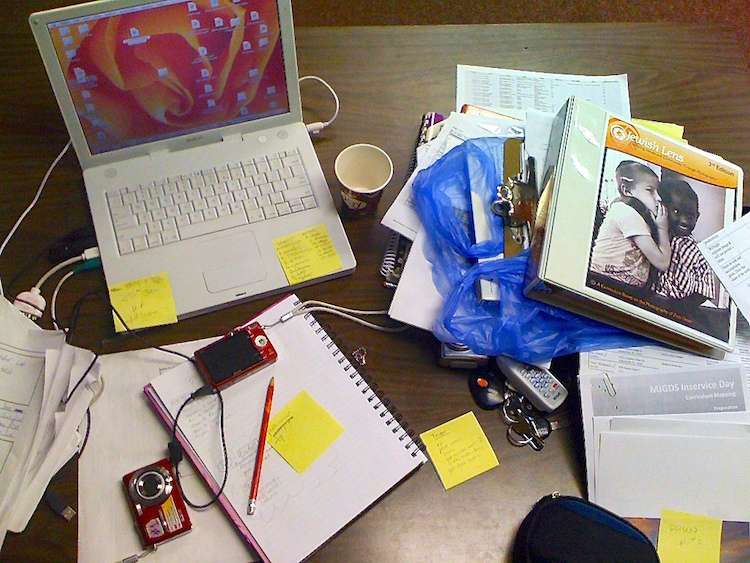There's never been a better time to be disorganized.
For those of who you have been criticized for being messy, we have some good news. According to Steven Johnson, "the more disorganized your brain is, the smarter you are."
He is the author of Where Good Ideas Come From: The Natural History of Innovation. In his book, he notes that this revelation was discovered in a neuroscience experiment conducted by bio-psychologist Robert Thatcher.
In addition, Johnson and other sources have cited "messy" ideas as proving to have a profound impact on creativity.
For instance, research has revealed "wandering minds" to be more creative—and even large cities as being more creative than smaller towns due to the amount of spurring ideas.
"Being right keeps you in place," says this author of seven books focused around science, technology and life. "Being wrong forces us to explore."
There's never been a better time to be disorganized.
For those of who you have been criticized for being messy, we have some good news. According to Steven Johnson, "the more disorganized your brain is, the smarter you are."
He is the author of Where Good Ideas Come From: The Natural History of Innovation. In his book, he notes that this revelation was discovered in a neuroscience experiment conducted by bio-psychologist Robert Thatcher.
In addition, Johnson and other sources have cited "messy" ideas as proving to have a profound impact on creativity.
For instance, research has revealed "wandering minds" to be more creative—and even large cities as being more creative than smaller towns due to the amount of spurring ideas.
"Being right keeps you in place," says this author of seven books focused around science, technology and life. "Being wrong forces us to explore."
The book begins with Charles Darwin's first encounter with the teeming ecosystem of the coral reef and draws connections to the intellectual hyper-productivity of modern life.
By the end of the book, Johnson builds a case for what he believes:
"You may not be able to turn your government into a coral reef, but you can create comparable environments on the scale of everyday life: in the workplaces you inhabit; in the way you consume media; in the way you augment your memory. The patterns are simple, but followed together, they make for a whole that is wiser than the sum of its parts. Go for a walk; cultivate hunches; write everything down, but keep your folders messy; embrace serendipity; make generative mistakes; take on multiple hobbies; frequent coffeehouses and other liquid networks; follow the links; let others build on your ideas; borrow, recycle, reinvent. Build a tangled bank."
(READ more at TIME Magazine)
Inspire the creativity, share below…










Be the first to comment